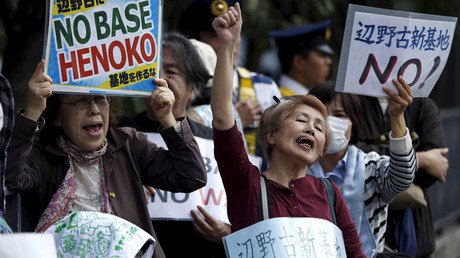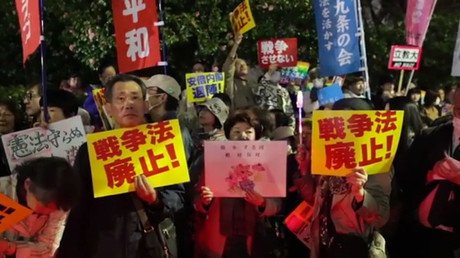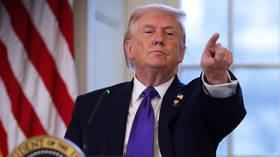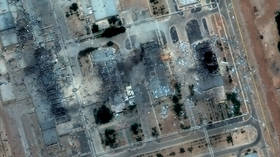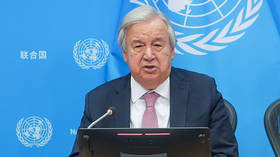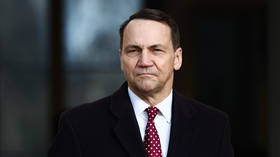US presence in Japan ‘necessary,’ claims PM Abe
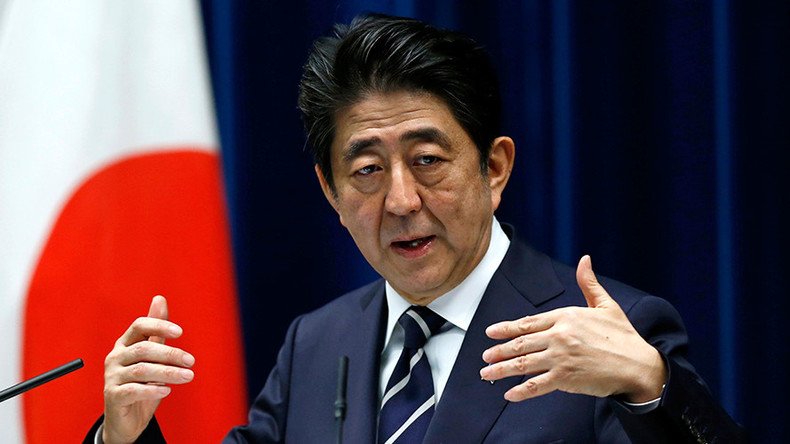
The US military bases stationed in Japan will not be relocated “within the foreseeable future” since the island country still needs security backing from the United States, Japanese Prime Minister Shizo Abe has said in comments to the Wall Street Journal.
“I cannot conceive of any situation within the foreseeable future when the US presence wouldn’t be necessary,” Abe said in an interview with the WSJ, published on Tuesday.
The statement came in response to a question on the possibility of the withdrawal of American troops from Japan – a move recently proposed by Republican presidential front-runner Donald Trump, who said if elected he may reconsider the 56-year-old security pact between the two-countries.
US President Barack Obama, in turn, called Japan “one of the closest allies” of the United States while meeting Prime Minister Abe in February. This alliance is “the central foundation for [our] regional security,” Obama argued.
Abe echoed Obama’s statement: “By strengthening the Japan-US alliance, we’ll strengthen deterrence and that will contribute to peace and stability in the region, not just Japan,” he said.
Abe’s government last year passed a controversial law allowing the Japanese military to engage in war to defend its allies, despite protests and opposition attempts to derail the bill. The heated debated is linked to Article 9 of Japan’s Constitution, which bans it from using military force to settle conflicts, as well as preventing it from having an army, navy or air force. Recently, however, there has been a push to revise the law.
The shift was described by many as a major step for Japan after more than half a century of post-World War Two pacifism. The unpopular reform sparked waves of indignation among the Japanese public standing for a more peaceful policy. Thousands of people took to the streets of Tokyo and other cities to protest back in September 2015.
Over 50,000 US troops at 109 military bases are currently present in Japan, according to official information provided by the Department of Defense and its Defense Manpower Data Center.
The government’s recent decision to relocate the Futenma US marine base from the densely populated area of Ginowan to the less-populated Henoko area, while still keeping it on Okinawa island, has prompted a new round of outrage among the Japanese, who staged nationwide protests in late February. The controversy around the base is also linked to cases of alleged rape by US military personnel stationed there.
Japan and other Asian countries were also mentioned in Hillary Clinton’s and Bernie Sanders’ rhetoric in regard to the Trans-Pacific Partnership (TPP) agreement, which was signed by President Barack Obama but is being criticized by both Democrats and Republicans.
“This is the birth of an economic zone that has 40% of the world’s [gross domestic product], one that is protected by free and fair rules. Through it, the US, Japan and the other countries participating in TPP will achieve great profit and gain chances for growth,” Abe said about the deal.
The TPP agreement, reached in February after seven years of negotiations, but not yet approved by Congress, is an ambitious project designed to encourage significant economic growth for the 12 countries involved. Despite the promises of benefits to the economy, there have been concerns that the unemployment level in the US may rise as jobs could move to developing countries.
